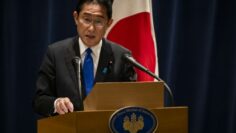Local High School Student’s Research Led to Garden on Wheels Initiative for Bangladeshi Villagers
Mahdia Ahmed: Three meals a day is the average recommendation for maintaining a healthy diet. 13,000 km away, Bangladeshi villagers scrummage to find even one meal. As a result, around 40 million people—a quarter of their entire population—suffer from food insecurity, and COVID-19 is only accelerating this. The biggest cause is Bangladesh’s agricultural industry has been the silent victim of an all too well-known enemy: global warming. The rising temperatures have created a cascade of problems from flooding to the salinization of farmlands.
Although many countries in the world are affected by global warming, Bangladesh is the most innocent. The top 20 countries, including America, are responsible for 83 percent of all carbon emissions. Due to this, 50,000 villagers in Bangladesh get displaced each year. When it comes to aiding these villagers, America falls short of providing resources (Ahmed, Bayes).
As a result, displaced villagers suffer from food deprivation. However, with my Garden on Wheels initiative, I hope to help villagers grow mobile farms that in the case of a predicted disaster gives the villagers ample time to take their business and food source with them. Produces like potatoes, beans etc. can easily be farmed in medium-sized pots stacked on rickshaw vans available throughout Bangladesh. Each village will receive 2-3 rickshaw vans, pots, and seed packages as part of the initiative.
Through fundraising, collecting donations, and raising awareness I hope to help fight this enemy that has hurt too many lives for too long.
The goal is to reduce the number of villagers suffering from acute hunger and other common diseases associated with malnutrition. Success will be measured based on the number of rickshaw vans delivered compared to the change in percentage of victims suffering from food insecurity. Also, these portable farms can establish a stable source of income which can be measured by monitoring the change in Bangladesh’s poverty rate. Lastly, Garden on Wheels initiative will be to help educate villagers about Global Warming which can help prepare for disasters. Success of this will be measured based on the number of villagers participating in the program.
Surprisingly, Bangladesh has been battling global warming for over a decade, and many solutions were proposed like aquaculture, however, cyclones destroyed many aquafarms. The government has also made a few attempts to help, but many failed to create substantial change owning to a lack of coordination and funding. The Garden on Wheels initiative is different because it won’t rely on nature and all resources will be funded via volunteer donations.
However, regardless of how passionate I am about science and activism, ending climate change is unrealistic, but if I can reduce food insecurity because of climate change that still saves many lives. Collecting supplies, reaching out to villagers, and delivering resources (especially with COVID-19) will be a challenge, but with the help of other non-profits organization, enough awareness can be generated to make this project a success. Whenever I think about what I want to do when I grow up, it is to help make the world a better place, but now I know that journey starts today.
References
Ahmed, Bayes. Who Takes Responsibility for the Climate Refugees? 17 Jan. 2017, www.emerald.com/insight/content/doi/10.1108/IJCCSM-10-2016-0149/full/pdf?title=who-takes-responsibility-for-the-climate-refugees. Accessed 15 May 2020.
Mahdia Ahmed, Environmental Enthusiast, Pennsylvania



















